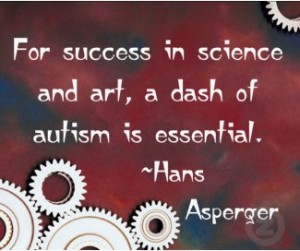In 2006, Gavin Bollard’s eldest son was diagnosed with Asperger’s syndrome. When Gavin began researching Asperger’s, he realized that much of what he read about it applied to himself. Subsequently, Gavin was also diagnosed with Asperger’s. (Gavin had worked with a speech therapist as a child, despite not being diagnosed until adulthood.) Later, Gavin’s younger son was also found to have autism spectrum disorder (ASD). Gavin Bollard blogs about his family’s life with Asperger’s syndrome at Life with Asperger’s. In particular, Gavin emphasizes the importance of celebrating every child’s uniqueness, whether or not they are diagnosed with ASD. Read on to find Gavin’s tips for parents who are new to the Individualized Education Program (IEP) process and his advice on helping children with Asperger’s.
Tips for Parenting an Asperger’s Child
Speech Therapy TechniquesIn 1944, pediatrician Hans Asperger noted the classic behavior patterns of children with Asperger’s syndrome. These children have different patterns of speech, impaired social skills, and difficulty displaying empathy. However, as one mom of an autistic child points out, this developmental disorder does not mean that the child has a diminished intelligence. A speech-language pathologist (SLP) can help your Asperger’s child develop his speech and language skills. Talk to the SLP about activities that you can do at home to help your child flourish and avoid social isolation.
Parenting Teens with Asperger’s
Speech Therapy TechniquesThe Challenges of Asperger’s
Asperger’s syndrome is a developmental disorder that is categorized as an autism spectrum disorder (ASD). While getting help for your child early on in his life will help him cope with the typical signs and symptoms of Asperger’s, some issues will continue to persist as he grows into young adulthood. Teens tend to identify themselves as part of their group of friends. But a teen with Asperger’s can have trouble relating to other people. Other kids may not empathize with your child’s struggles, and this may cause him to feel isolated, frustrated, and emotionally drained. Your teenager may feel particularly overwhelmed as he begins to consider dating.



